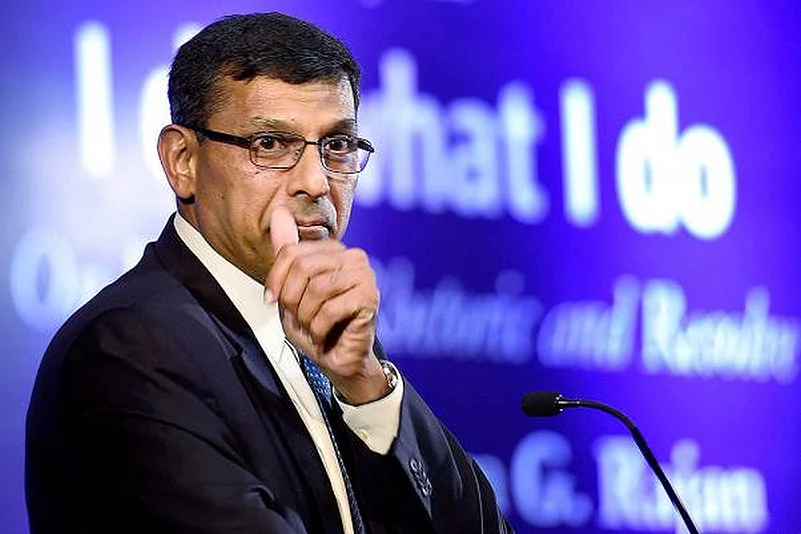Expressing doubts over Indian economy growing at 7 per cent when not enough jobs were being created, former RBI Governor Raghuram Rajan on Tuesday said the current cloud over the GDP numbers must be cleared by appointing an impartial body to look at the data.
Rajan, who has also served as Chief Economist at the International Monetary Fund (IMF), said he had no idea what statistics are pointing at currently and "a revamp" was needed "to really figure out what India's true growth rate is".
"I know one minister (in the Narendra Modi government) has said (that) how can we be growing at 7 per cent and not have jobs. Well, one possibility is that we are not growing at 7 per cent," he told CNBC TV18. He did not name the minister.
Finance Minister Arun Jaitley has been stoutly defending the growth data saying an economy cannot be growing at 7-8 per cent without creating jobs. He has also stated that no major social agitation indicates it hasn't been jobless growth.
Rajan, who was Reserve Bank of India (RBI) Governor between September 2013 and September 2016, said a stronger broad-based growth is needed that creates more jobs.
On doubts being raised by some over economic data after revision in growth rate, he said a clean up act is needed and an impartial body appointed to look at the numbers.
"I just think that we need now to essentially clean up, find out what in fact is the source of confusion with the new GDP numbers, with the revisions etc. I would say setting up an impartial body to look at it is an important step to resorting confidence," he said.
The impartial body may throwback the same numbers but "we absolutely need better confidence in our GDP numbers now given the back and forth we have had".
Rajan, who is on a tour to promote his new book 'The Third Pillar', said a broad-based growth that creates meaningful jobs for people was needed.
"We need stronger broad-based growth, which primarily for most people means good jobs. What we need to do is focus on how do we create good jobs for the vast number of people who are leaving schools, who are leaving agriculture, who are leaving universities, in such a way that they can expand India's growth," he said.
"Lot of people have said the population dividend should not become a population curse. This is the time when we need to make sure that in fact doesn't happen," he added.
On Demonetisation and Jobs data
Speaking to NDTV, he suggested that the government should introspect on some of its decisions like the controversial note ban.
"Enough time has now passed by for us to look back at demonetisation and ask what the learning has been from it? Did it work or not? And what were the positives and negatives... Self-examination is something that every government must do for better governance and efficiency," the renowned economist was quoted as saying by NDTV.
On the controversy over the jobs data, Rajan said "Given that kind of anxiety, it is important, just to convey to the world, that we are not manipulating anything... this is our data, to actually have an independent group look into it and certify that our data indeed is fine or suggest the changes needed," he said.
Rajan said India has had a good record with credible data.
"We need to take a fairly clean, independent look at our statistics process. What I would think might be useful is to get a panel of independent experts to go through that... and think very carefully about the processes we follow," he said.
On his return to India
When asked whether he would like to return to India in public service or even a political role, he said, "I am very happy where I am. But if there is an opportunity to be of use I will always be there."
Rajan is currently the Katherine Dusak Miller Distinguished Service Professor of Finance at the University of Chicago's Booth School of Business in the US.
On RSS
On whether the Rashtriya Swayamsevak Sangh (RSS) is a threat to India's composite culture, Rajan said: "I do not have any doubt there are good people in RSS...It is not an indictment of every person there."
"But the aim of majoritarian organisations is what I am more worried about. My worry is a very diverse country like India which has so many minorities, religion, ethnic groups, we simply cannot afford to say he belongs and she doesn't".
Rajan further said: "We have built a country based on tolerance and respect. And at this time we would be crazy to sacrifice that for a narrow sectarianism that will stand in our way of growth. If you are a true nationalist today you have to say that we have to be a country that respects all."
PTI


























